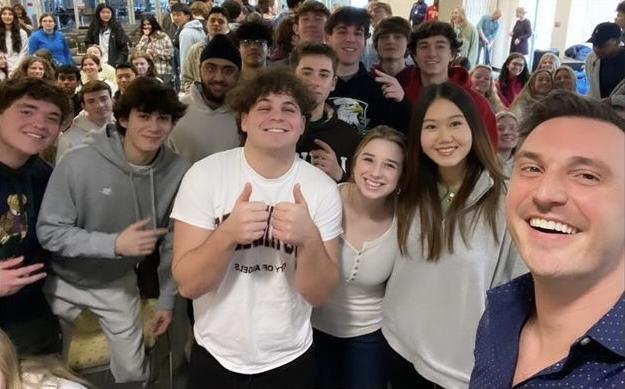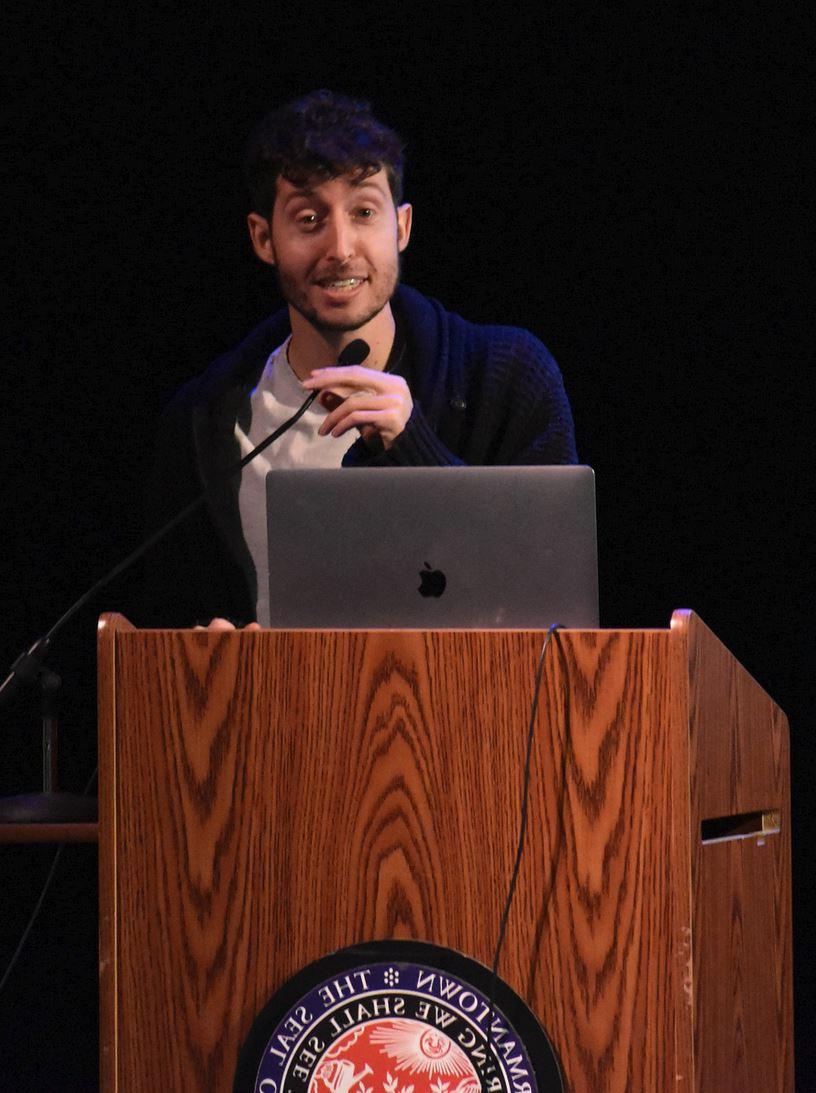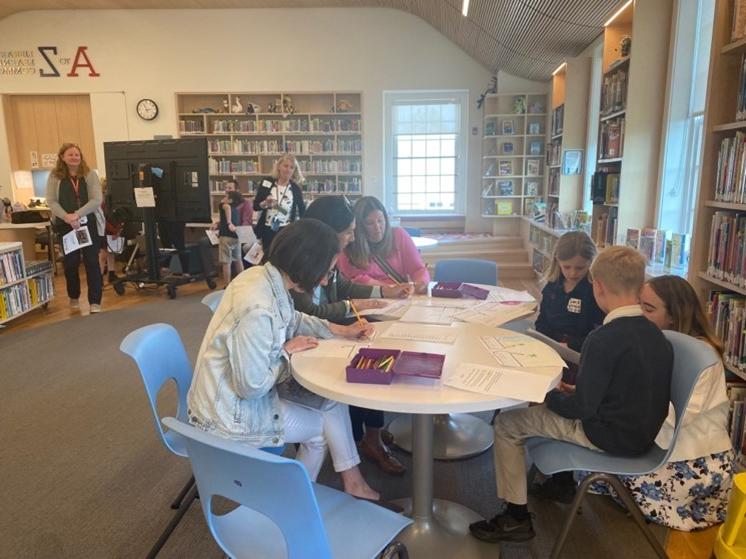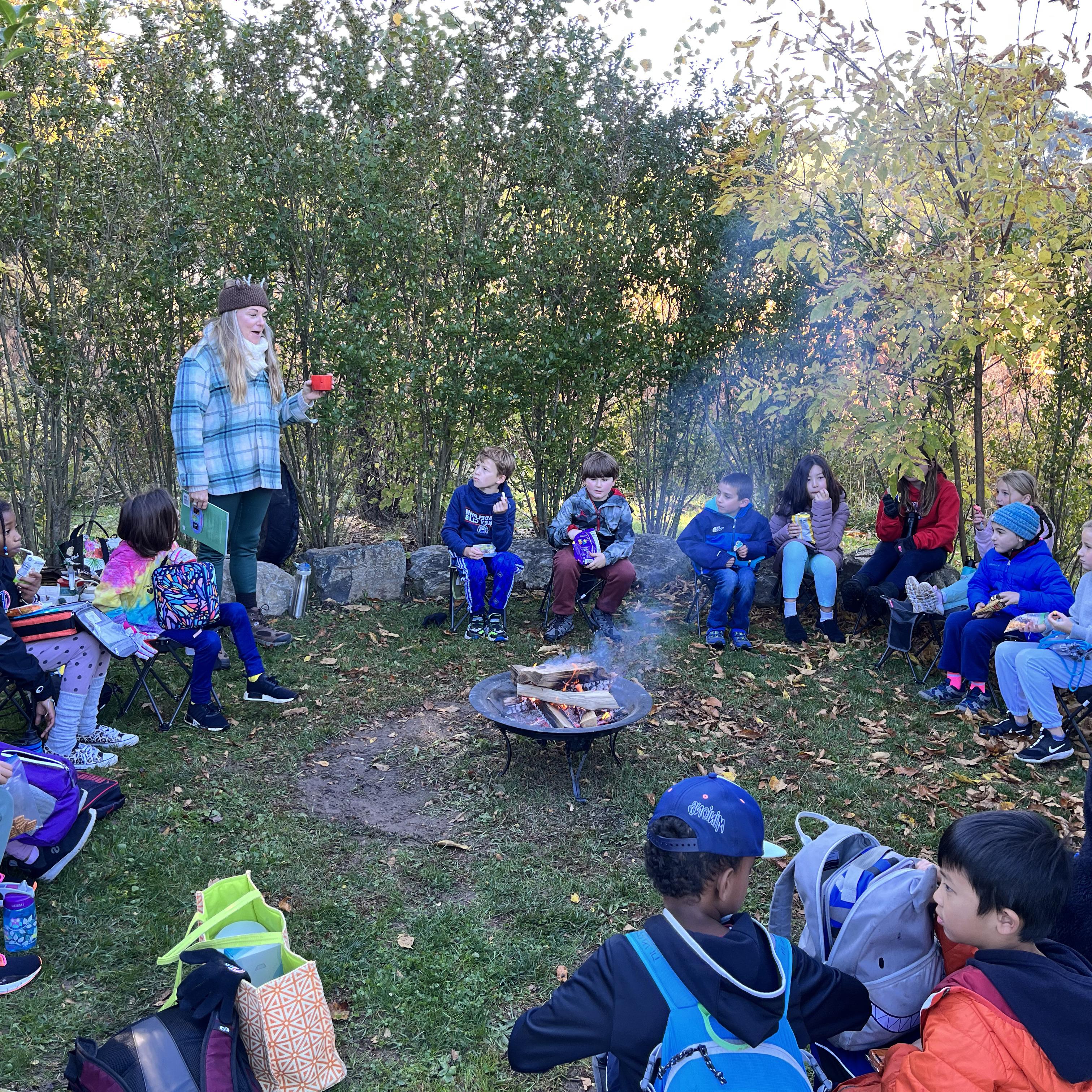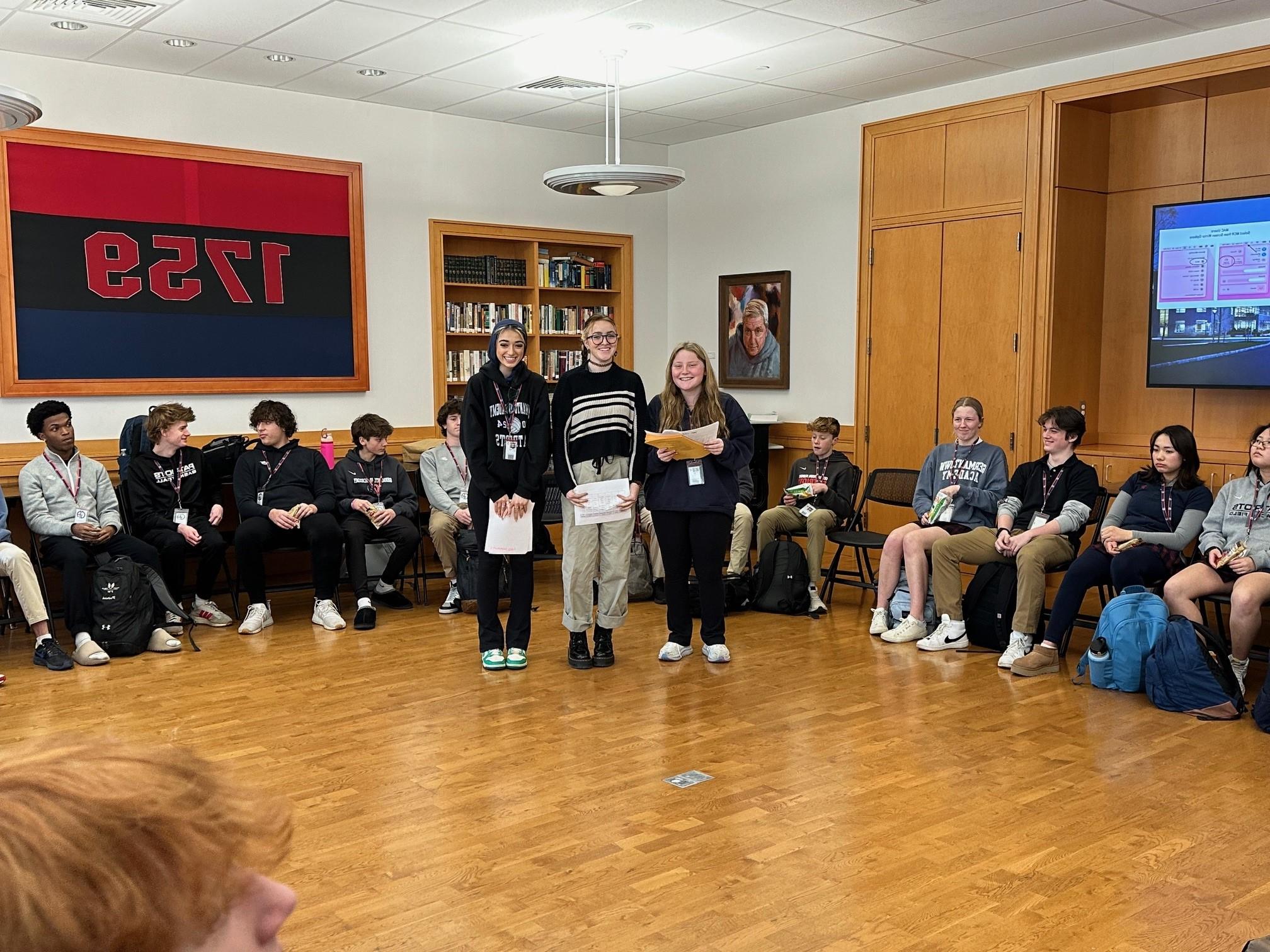
Associate Director of Equity & Inclusion Sarah Na has been developing and teaching identity curriculum across the GA community for the past two years. Her teaching background (14 years in the Lower School) has provided her with a strong foundation of empathy and clarity in the important work GA has committed to in its Strategic Vision, and she is proud of the way GA faculty, employees, and students have taken this opportunity to grow in self-awareness and appreciation for one another as a diverse community.
Na recently led a workshop at a Parents’ Committee meeting on Identity, and then oversaw a similar activity in the Upper School where student leaders peer-facilitated discussions. Below she answers questions about the activity – Step In, Step Out - and why she felt it was impactful and important.
|
|
|
Q: This activity was about raising awareness about student identities and lived experiences in our GA community. We believe that when we understand our own identities, we can have greater appreciation and respect for other people’s identities. Why is this an important skill for students to have?
A: It is critical for our students to have cultural competency skills to engage in a global world where they will need to communicate and connect with people from all different backgrounds. These soft skills will help them successfully navigate their college experience and whatever career path they choose.
Q: What were the goals of the activity?
A: We had three goals for today. 1. Learn more about who is in our community; 2. Grow in empathy by stepping into someone else’s experience; 3. Have a greater appreciation for the human experiences that are in our community.
Q: Why do you feel having “Community Agreements” are important before starting an exercise like this?
1. Be More Curious Than Certain- It is more important to ask questions and learn than to have all of the answers.
2. Listen to Understand- Be active listeners and try to withhold judgment.
3. Take Space, Make Space- Take a risk and contribute. Share talking time so that everyone has an opportunity to talk.
4. Take the Learning, Leave the Stories- Don’t repeat what people share.
5. Go Get Your Learning- This is an opportunity for you to learn so make the most of it.
A: There is an element of vulnerability when students are engaging in discussion about identity, so it is important to set the tone and some ground rules for respectful engagement.

Q: What were you hoping that the opening question – “On your blank piece of paper, write up to five adjectives to describe a “typical” GA upper school student.” – would do for the students?
A: This initial prompt was to help students think about what stereotypes they may have about a “typical GA upper school student.” Then they would reflect on their assumptions after the Step In, Step Out activity where each student anonymously represented someone else's experiences based off of a checklist. In small groups, students discussed how their initial thoughts may have been challenged by the diverse experiences that students identified with during the Step In, Step Out activity.
Q: Was there a vulnerability among the students who have never thought about their peers in this way before?
A: Yes, I believe there was some discomfort in leaning into this activity. However, our student leaders did an excellent job setting the tone and leading their Houses into a learning space.
Q: What do you think students found surprising about this activity? How do you think students knowing about someone’s lived experiences will impact their engagement now with their peers?
A: Students were surprised that diversity is not only about race and culture. So many life experiences shape who we are and how we show up. High school is a time when most students want to blend in and not be noticed for how they may be different. However, differences are what make us who we are and shape our perspectives. These perspectives enrich our learning in and out of the classroom. I am hopeful that students got this message through the experience and will create more space and value for their peers.
Q: What’s next?
A: I believe peer facilitation is an excellent way for students to hone their leadership skills and would like to continue offering opportunities for training and empowering students to engage with one another around topics they feel are important to their community.


